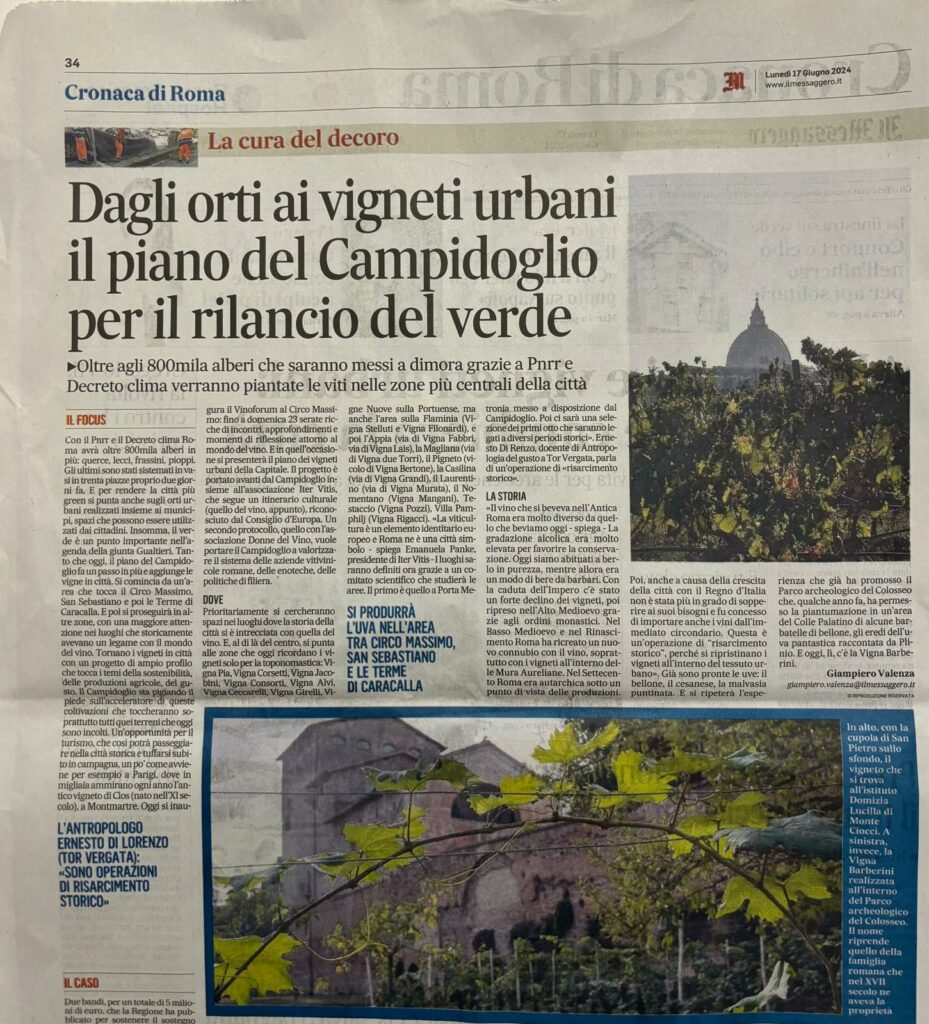Rome and Iter Vitis Collaborate to Elevate Urban Viticulture
Rome is taking a significant step towards enhancing its viticultural heritage on the international stage through a new collaboration with Iter Vitis, an international association dedicated to the protection and promotion of Europe’s vineyard landscapes. This partnership aims to create a comprehensive study to establish a network of urban vineyards within the city, promoting them as key components of Rome’s cultural and historical identity.
The initiative is part of a broader agreement, formalized through a protocol of understanding, which was recently approved by the city’s governing body. The proposal, presented by the Councillor for Agriculture, Environment, and Waste Management, Sabrina Alfonsi, received the green light from the municipal council, marking the beginning of a cooperative effort with Iter Vitis. This association, which includes 24 member countries, was officially recognized by the Council of Europe in 2009 for its mission to preserve vineyard landscapes as intangible cultural assets of high value.
A key component of this collaboration is the establishment of a scientific committee led by Professor Ernesto Di Renzo, who will oversee the in-depth study to identify potential areas within Rome suitable for the development of urban vineyards. The study will not only focus on the geographical and agricultural aspects but also on strategies for the cultural and educational promotion of these vineyards. The project envisions the urban vineyards serving as educational tools for residents, highlighting the importance of viticulture in the city’s historical and environmental fabric.
Councillor Alfonsi emphasized the importance of this initiative, noting that it adds a valuable dimension to the city’s ongoing efforts to safeguard viticultural biodiversity, promote wine tourism, and enhance the development of Rome’s wine heritage. « With the approval of this collaboration agreement, we are introducing another vital instrument in our strategy to preserve and promote Rome’s viticultural legacy. This initiative will integrate urban vineyards into the broader context of Rome’s historical and cultural identity, further strengthening our city’s connection to its rich winemaking traditions, » stated Alfonsi.
This project reflects a growing recognition of the role that urban vineyards can play in enhancing the cultural and environmental landscape of cities. By promoting wine tourism and incorporating vineyards into urban planning, Rome aims to set an example for other cities in Italy and beyond, demonstrating how the preservation of viticultural heritage can contribute to both cultural enrichment and sustainable urban development.
Through this collaboration, Rome and Iter Vitis are poised to transform the city’s relationship with its viticultural roots, offering both residents and visitors a unique opportunity to engage with the ancient tradition of winemaking in a modern, urban context. This initiative is expected to not only boost Rome’s profile in the international wine community but also foster a deeper appreciation of the city’s agricultural heritage among its citizens.

